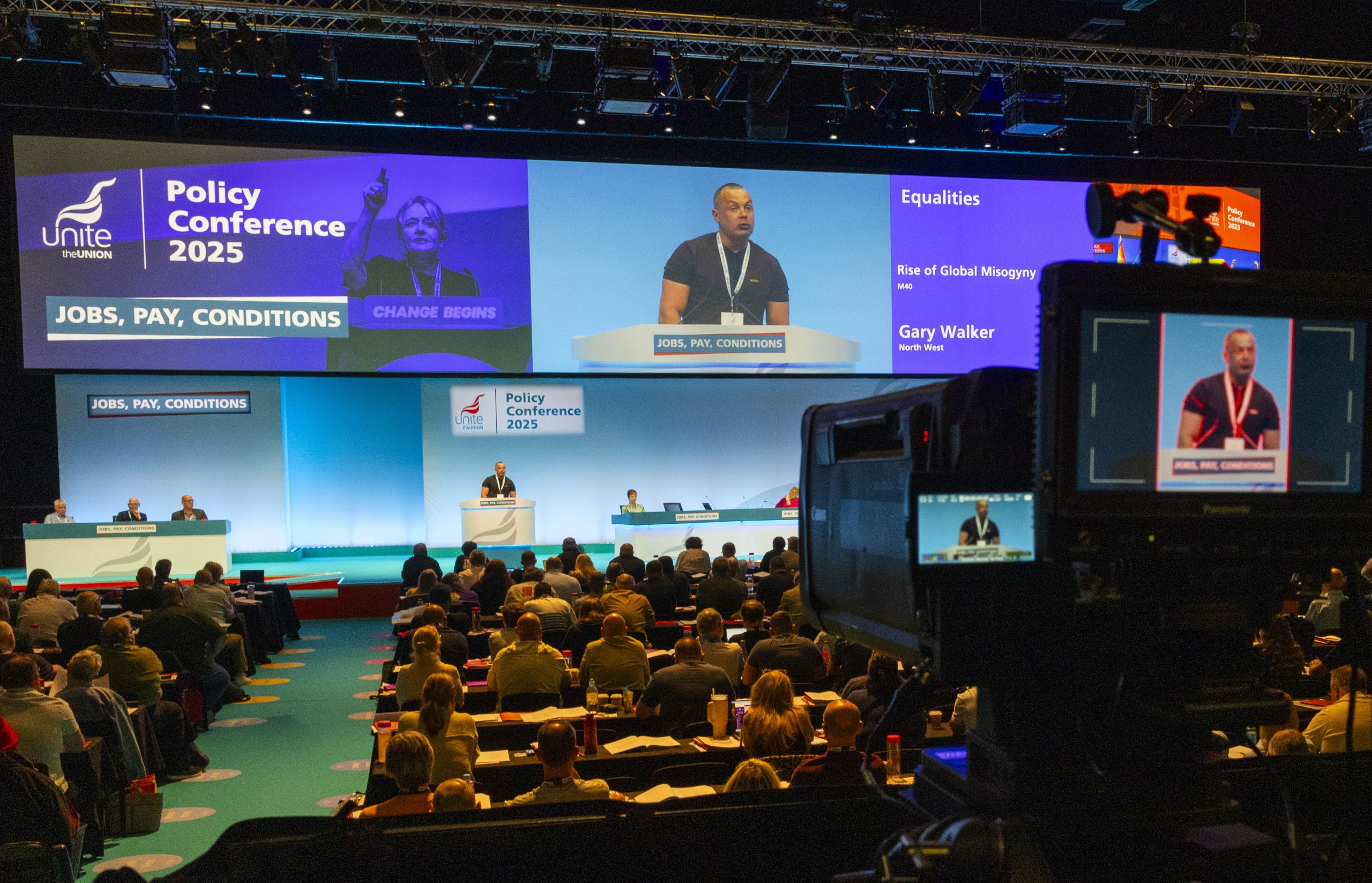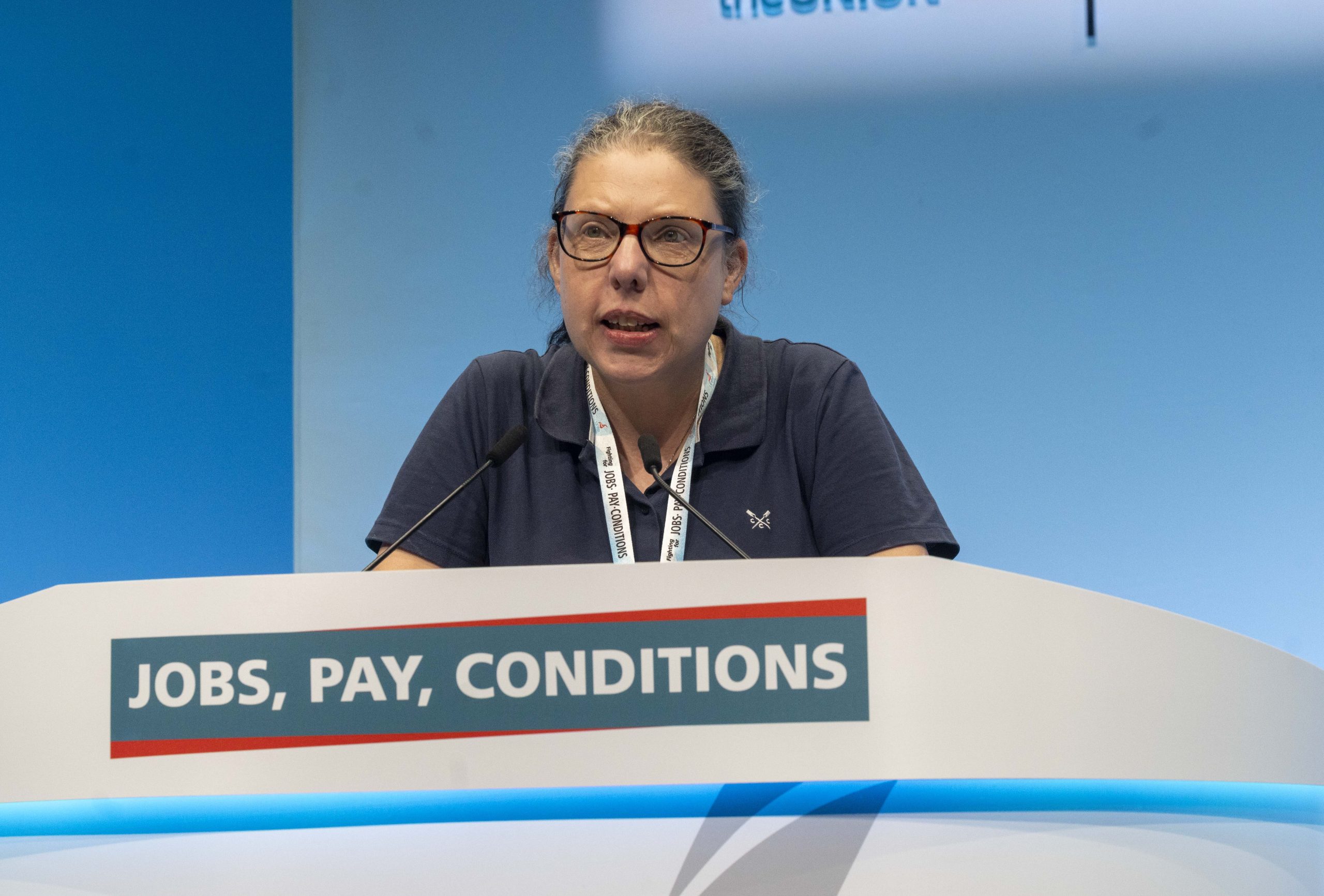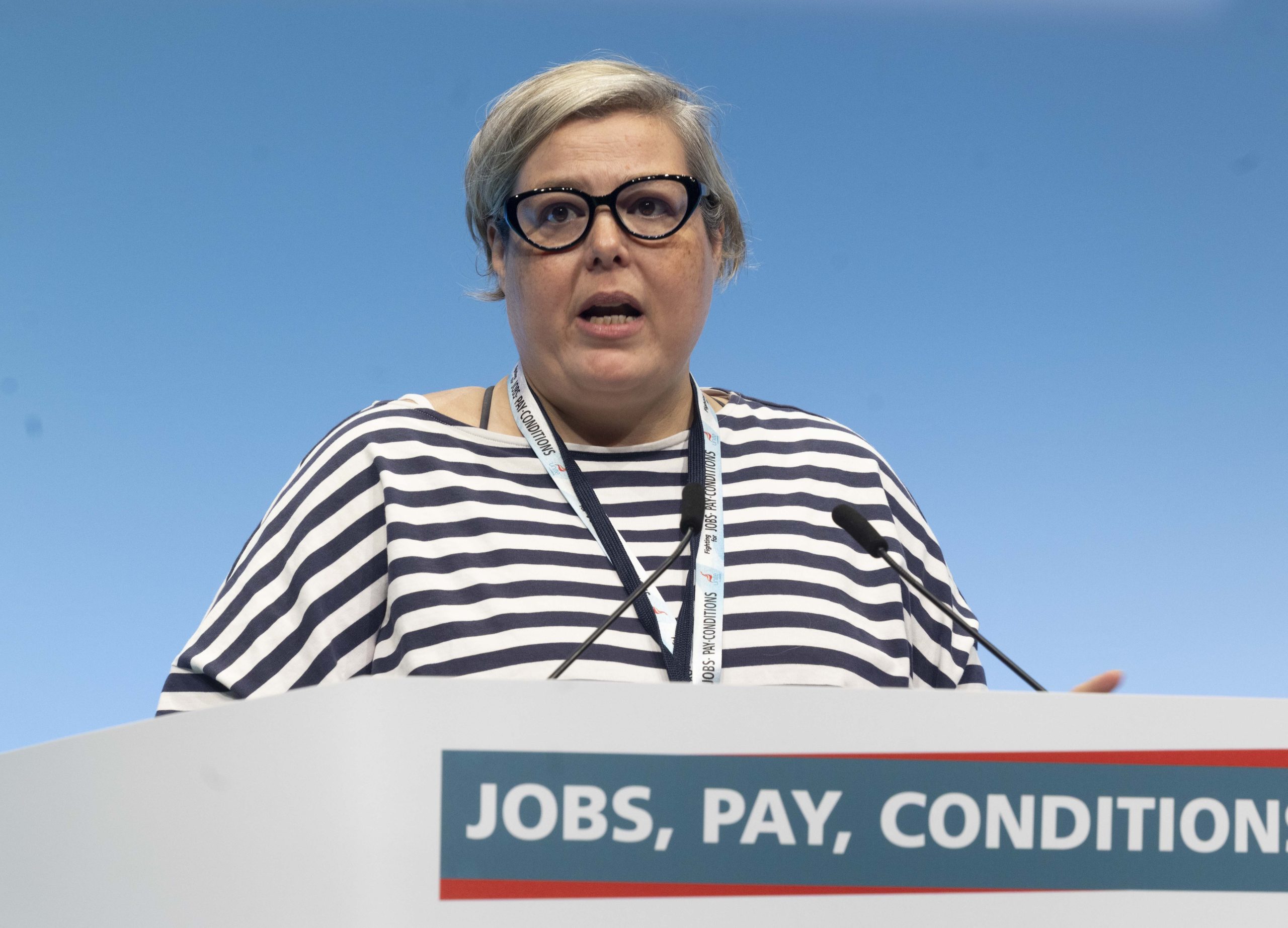Rise in misogyny a ‘wake-up call’
Unite delegates urge fight against global rise in misogyny
Reading time: 5 min
Unite delegates made passionate contributions in a debate on the rise of global misogyny at policy conference on Tuesday (July 8).
Unite delegate Donna McClaskey of the North West region moved the motion on the topic, noting that misogyny takes so many different forms, “both overt and subtle”.
She highlighted the many rights women successfully fought for in the 20th century, but said that society had “never completely eliminated the beliefs that women are inferior”.
“Today these beliefs are resurfacing with renewed strength, and are often masked as ‘edgy humor, free speech, or traditional values’,” Donna noted.
Donna went on to describe how misogyny has gone viral on social media and how women are hypersexualized in the media; how boys are taught that “dominance equals strength” and girls are taught to “stay silent and stay safe”.
“It shapes laws, cultures and futures and if we don’t address it, we risk normalizing this worldview that stifles half of humanity,” she continued.
Donna outlined what action everyone can take to fight this global rise in misogyny.
“Speak up – misogyny thrives on silence; whether it’s a joke in a group chat, or a viral post online, call it out. Educate – teach young people, especially boys, respect is strength. Challenge harmful stereotypes; promote emotional intelligence and empathy. Support victims and survivors. Believe women and amplify their voices. Advocate for laws and systems that protect them. Hold platforms accountable – tech companies must do more to stop the hate. Algorithms shouldn’t reward bigotry.”
Donna went on to call the rise of misogyny across the world a “wake-up call”.
“It tells us progress is not permanent; it must be protected and pushed forward every day,” she concluded.
Unite delegate Gary Walker, also of the North West region, highlighted that as the father of two girls, misogyny was an issue that was personally important to him. He said misogyny was not simply the dislike of women but it was more than that – it is the “systematic silencing of women”.

He noted that as someone who works in a male-dominated workplace, he sees misogyny play out often. He called on everyone to call it out when they see it, whether it’s workplace ‘banter’ or dismissing women in work meetings, and other more subtle forms of misogyny.
“The fight against misogyny isn’t just a women’s issue; it’s a human issue,” he said.
Several delegates made thought-provoking interventions in the debate, with Unite delegate Andrea Dick emphasising the importance of educating young people, especially sons.
“We all have a part to play in changing society,” she said.
Meanwhile, Rachel Eborall of London & Eastern region, highlighted the need to stand up for trans rights, because the rise in global misogyny was connected to the oppression of trans people.
“We need to resist all attacks on trans people, and fundamentally that is us fighting against misogyny,” she said to applause in the hall. “The rights of cis women and trans women are not opposed – they are fundamentally intertwined, and this is a trade union issue.”

Unite delegate William Hodgson of the North West spoke in support of both the motion on global misogyny and one on violence in schools, noting that both are inextricably connected. He spoke of his wife’s experience working in schools, where boys often use misogynistic language, aping prominent misogynists such as Andrew Tate and Donald Trump.
“These kids are eventually going to be in our workplaces, and it’s a ticking time-bomb that we’re going to have to deal with,” he warned.
Lastly, Elisabeth Webster of the London & Eastern region likewise weighed in on the debate, highlighting the importance of education.
“It is entirely about education; it is entirely about getting in on the ground floor,” they said. “It takes a village – and we should be at the heart of that, as we are at the heart of so many issues in our society.”

Both motions on global misogyny and violence in schools were carried.
By Hajera Blagg
Photos by Mark Thomas



